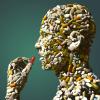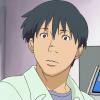Ginkgo Biloba is an ancient Chinese medicine used for a number of disorders, but the most interesting inclusion of this herb was made as the neutral herb in one of the most popular Chinese brain medicines for mental decline and mental retardation. Ginkgo + Ginseng + Gotu Kola was the remedy. Ginseng would be the "warm" herb, meaning it was stimulating. Gotu Kola would be the "cold" herb, meaning it was sedating. Ginkgo would be the neutral herb, which ties the two together.
What makes this herb interesting to me is that I have taken it thinking it would help with ADHD, but all I noticed was flush face and an ability to bleed for 15 minutes. It is great for preventing stroke and preventing stress from stroke due to its blood vessel enhancing, platelet de-aggregating, plaque removal, stress-reducing properties. It's a true circulation tonic, if there ever was one. This may attribute to some increased oxygen in the brain, but it is not, in my opinion it's primary mechanism of action.
Ginkgo Biloba is a...
- Circulation Tonic.
- GABA Receptor Antagonist.
- Glycine Antagonist and Regulator.
- Norepinephrine Re-Uptake Inhibitor. (100mg/kg) Inhibits NET, not MAO or DAT.
- 5-HT3 Antagonist. Ginkgolide B & Bilobalide block the 5-HT3(A) receptor.
- Neuroprotector. Bilobalide seems to be at the root of a half a dozen effects.
- Inducer of CYP3A. Bilobalide significantly induces the p450 enzyme CYP3A.
- Regulator of Glutamate. Reduces glutamate release after stroke.
Let me explain. Gotu Kola is an herb that raises GABA levels, so to counteract this, Ginkgo blocks GABA receptors from getting too overactive and sedating you, keeping a healthy balance. Ashwagandha (or another Ginseng) raises monoamine levels, and Ginkgo blocks 5-HT3, which is an excitatory serotonin receptor, so it prevents some serotonin syndrome-like effects (nausea, anxiety, twitches, etc.) from the Ginseng.
Don't dis the Ginkgo without knowing how to stack it.




























































